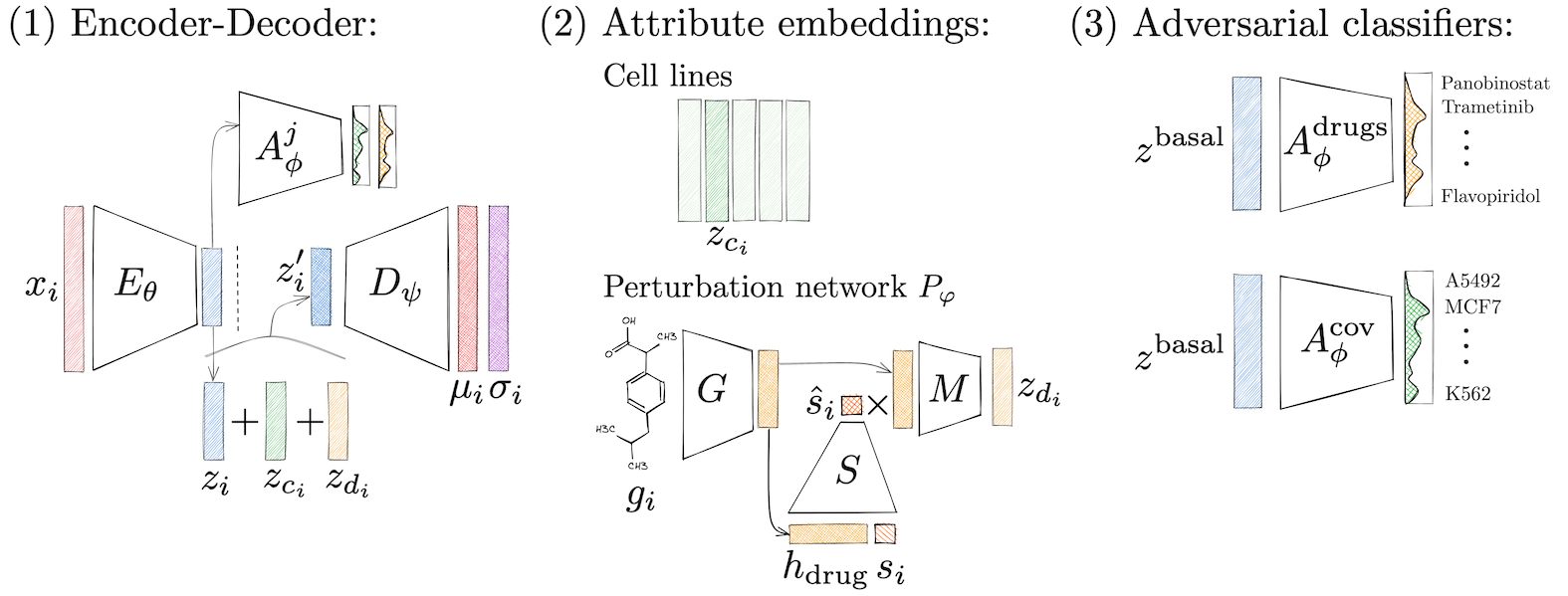Code accompanying the ICLR 2022 MLDD paper. Main authors: Leon Hetzel, Simon Boehm (equal contribution).
Disclaimer: Various people are working on more maintainable implementations of (chem)CPA, and it may be worth waiting until CPA lands in scvi-tools. However, this current version implements many performance optimizations (careful data-movement, disentanglement on GPU, numerically stable losses, ...) that allow for training on large datasets, like L1000.
For the final models, we provide weight checkpoints as well as the hyperparameter configuration. The raw datasets can be downloaded from a FAIR server.
To setup the environment, install conda and run:
conda env create -f environment.yml
python setup.py install -e .chemCPA/: contains the code for the model, the data, and the training loop.embeddings: There is one folder for each molecular embedding model we benchmarked. Each contains anenvironment.ymlwith dependencies. We generated the embeddings using the provided notebooks and saved them to disk, to load them during the main training loop.experiments: Each folder contains aREADME.mdwith the experiment description, a.yamlfile with the seml configuration, and a notebook to analyze the results.notebooks: Example analysis notebooks.preprocessing: Notebooks for processing the data. For each dataset there is one notebook that loads the raw data.tests: A few very basic tests.
All experiments where run through seml.
The entry function is ExperimentWrapper.__init__ in chemCPA/seml_sweep_icb.py.
For convenience, we provide a script to run experiments manually for debugging purposes at chemCPA/manual_seml_sweep.py.
The script expects a config_sciplex3_interactive.yaml file containing the experiment configuration.
All notebooks also exist as Python scripts (converted through jupytext) to make them easier to review.
You can cite our work as:
@inproceedings{hetzel2022predicting,
title={Predicting single-cell perturbation responses for unseen drugs},
author={Hetzel, Leon and Böhm, Simon and Kilbertus, Niki and Günnemann, Stephan and Lotfollahi, Mohammad and Theis, Fabian J},
booktitle={ICLR2022 Machine Learning for Drug Discovery},
year={2022}
}
